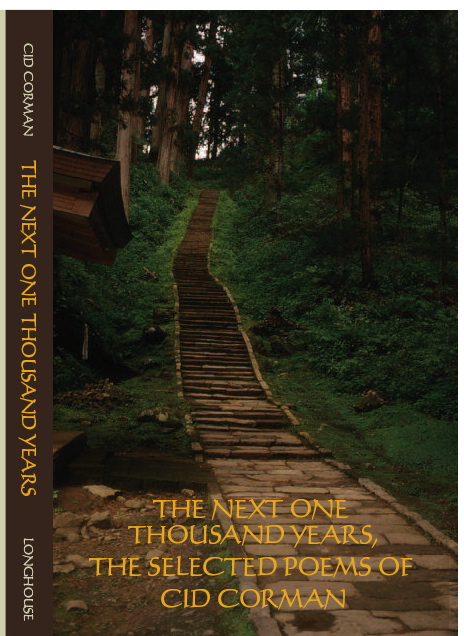| » Cover | ||
|
Essays
Is that a poem? Corman is best known for his very short poems; their insights into human foibles and life's simple joys conveyed with a lightly offered didactic, almost fatherly, directness. That directness can sometimes be quite pointed, but it's always offered with an urge to make the world, and those of us in it, better, more decent, more self-aware. Corman's most characteristic style is one of questions, either implied or offered, answered with an observational twist, oftentimes with a wry smile—stern but forgiving. He allows the unsaid to bubble up in his words. It's quite an amazing feat—teaching through implication, insinuation, and turn of common phrase: My brother awoke / one night, I'm told, / and said to a sound // moved, "Is that you, Cid?" / I'm here, of course— / whatever that means. ("Long Distance") Although some of the poems are haiku-like; they are really more aphoristic. Corman's main theme is livingdying, his word for our life on earth—we're experiencing both whether we know it, are aware of it, or not: the trouble // with the end? / as we all // know too well— // is that it's / only the // beginning. (Untitled) Most of all Corman offers us his greatest wisdom—that listening, attending is the richest life: No scent to / the cherries / or the snow // and yet there's / a fragrance / that much more. (Untitled) The editors, in hopes of providing a wide and historic view of his work, have chosen not only the characteristic short poems but also poems in longer forms and translations (Celan, Santōka, Bashō, Mandelstam, and Ungaretti, among others). The selection doesn't disappoint. Before his death in 2004, I reviewed one of his many books, Nothing Doing, and we published his poems in Oyster Boy 8, 12, and 17.
|
|||||
